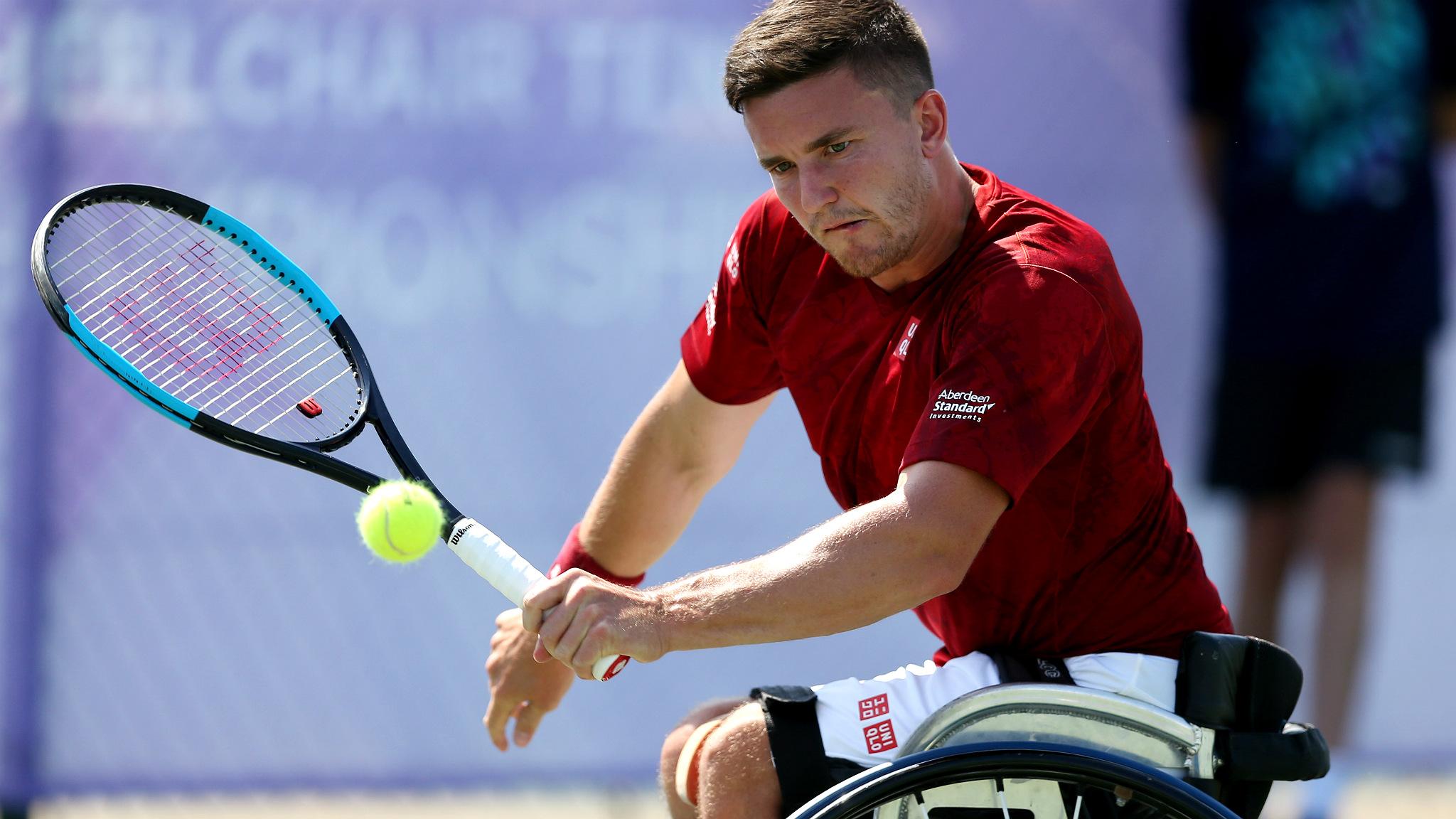Novak Djokovic: How body clock and diet give him time to dominate
- Published
- comments
Djokovic will not criticise crowd
Only six men in the history of tennis have won more Grand Slam titles than Novak Djokovic, and as he promised after winning a 10th in New York on Sunday: "As long as there is this flare in me, I will be coming back."
Winning three more Grand Slams would take him past Bjorn Borg, Rod Laver and Roy Emerson on the all-time list, and in sight of Pete Sampras and Rafael Nadal, who both have 14 to their name.
Roger Federer's record of 17 remains the ultimate goal. Djokovic has nearly six years on Federer, but modern history suggests such relentless success will be extremely difficult to sustain into his 30s.
More from BBC Sport | |
|---|---|
Watching him now, though, makes anything seem possible. Djokovic reached all four of 2015's Grand Slam finals, losing only to Stan Wawrinka in the championship match at the French Open. He is already guaranteed to end the year as the world number one for the fourth time in five seasons: only Federer, Sampras and Jimmy Connors have done so more frequently.
Djokovic was not even at the peak of his powers at this US Open. Federer had exactly the right game plan in the final, but was not able to execute it as well as he expected to at the critical moments. The Swiss converted just four of his 23 break points (10 of which included a second serve), but many of those were created by rushing the net: sometimes as Djokovic was still tossing the ball in the air to serve.
"It seems like there are not many guys that can hang with him," Federer reflected in defeat.
"They don't have the tools or dare to go forward, or dare to serve and volley against him because he's so good on the return."
Most Grand Slam titles |
|---|
17: Roger Federer |
14: Pete Sampras, Rafael Nadal |
12: Roy Emerson |
11: Rod Laver, Bjorn Borg |
10: Bill Tilden, Novak Djokovic |
It is hard to imagine Federer being able to play even better next summer - a summer in which he will turn 35 - so who else can come up with some of the answers?
Andy Murray has the ability to beat Djokovic, but he is unlikely to try from the net and has not overcome the Serb in a Grand Slam since the 2013 Wimbledon final. Nadal will still very much believe in his chances if he can stay fit and healthy for a consistent period of time, but may struggle to impose himself in the way he needs to away from Roland Garros.
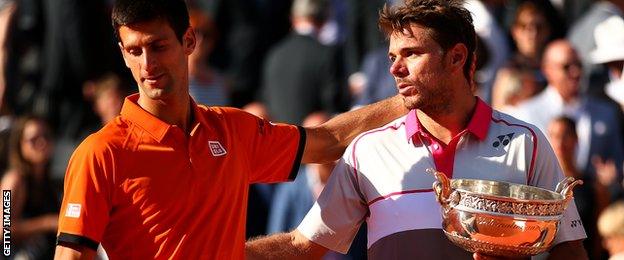
Stan Wawrinka beat Djokovic in the final of the French Open earlier this year
Wawrinka provided the answer in Paris this June, with one of the most thrilling counter-attacks ever seen in a Grand Slam final. He went for broke, and it came off gloriously as a barrage of ferocious groundstrokes scorched the lines, but it is exceptionally rare for any player to be able to sustain such a high-risk level for as long as Wawrinka did.
World number six Kei Nishikori is a potential Grand Slam champion (especially if he has a little more luck with injuries) and a very talented new generation is emerging, but players like 18-year-old Borna Coric need at least another couple of years before they can be considered genuine contenders.
So the reality is that over the next three years, only Djokovic looks to have the tools to dominate a Grand Slam season in the way he did this one.
He has no weaknesses and is incredibly comfortable on all surfaces, whether there is a roof over his head or not.
His coaching set-up appears ideal: Marian Vajda has been with Djokovic for the best part of a decade, and Boris Becker, who joined the team in December 2013, offers the perspective of a fellow Grand Slam champion.
The great imponderable is whether he will still have the desire, as well as the physical and mental capacity, to keep regularly winning Grand Slams into his 30s.
"I have always valued the care for my body and my mind and had this holistic approach to life. I always thought this is of the utmost importance for my tennis," Djokovic said in the aftermath of his second US Open title.
"I will continue on with the same kind of lifestyle. Hopefully this kind of approach will give me longevity and I can have many more years to come and many more opportunities to fight for these trophies."
Elite company |
|---|
Djokovic is just the third man in the Open Era, which began in 1968, to reach all four Grand Slam finals in a calendar year, after Rod Laver in 1969 and Roger Federer in 2006, 2007 and 2009. |
In 2010, Djokovic cut out wheat and dairy and reduced his sugar intake - he has won nine of his 10 Grand Slams in the five years since. He is also an advocate of the traditional Chinese medicinal belief that parts of the body heal at different times of the day.
The large intestine, for example, is supposed to be working to remove toxins from the body between 5am and 7am, and so to aid the process, the 28-year-old will always drink a glass of warm water as soon as he wakes.
Djokovic won his first Grand Slam in Melbourne at the age of 20, so at the very least will have to buck recent trends if he is to remain a serial winner in his early 30s.
Pete Sampras did win his first and last Grand Slams 12 years apart, but only won one after turning 29.
Federer has been similarly frustrated: the Wimbledon title of 2012 is the only Grand Slam he has managed to land since his 29th birthday. Nadal won at least one major title every year for 10 years, but his most recent success came just days after turning 28.
Maybe Djokovic will prove unique in the men's game, and take a leaf out of Serena Williams's book.
And maybe Federer will need the insurance of one further Grand Slam title to keep that record more secure.
- Published14 September 2015
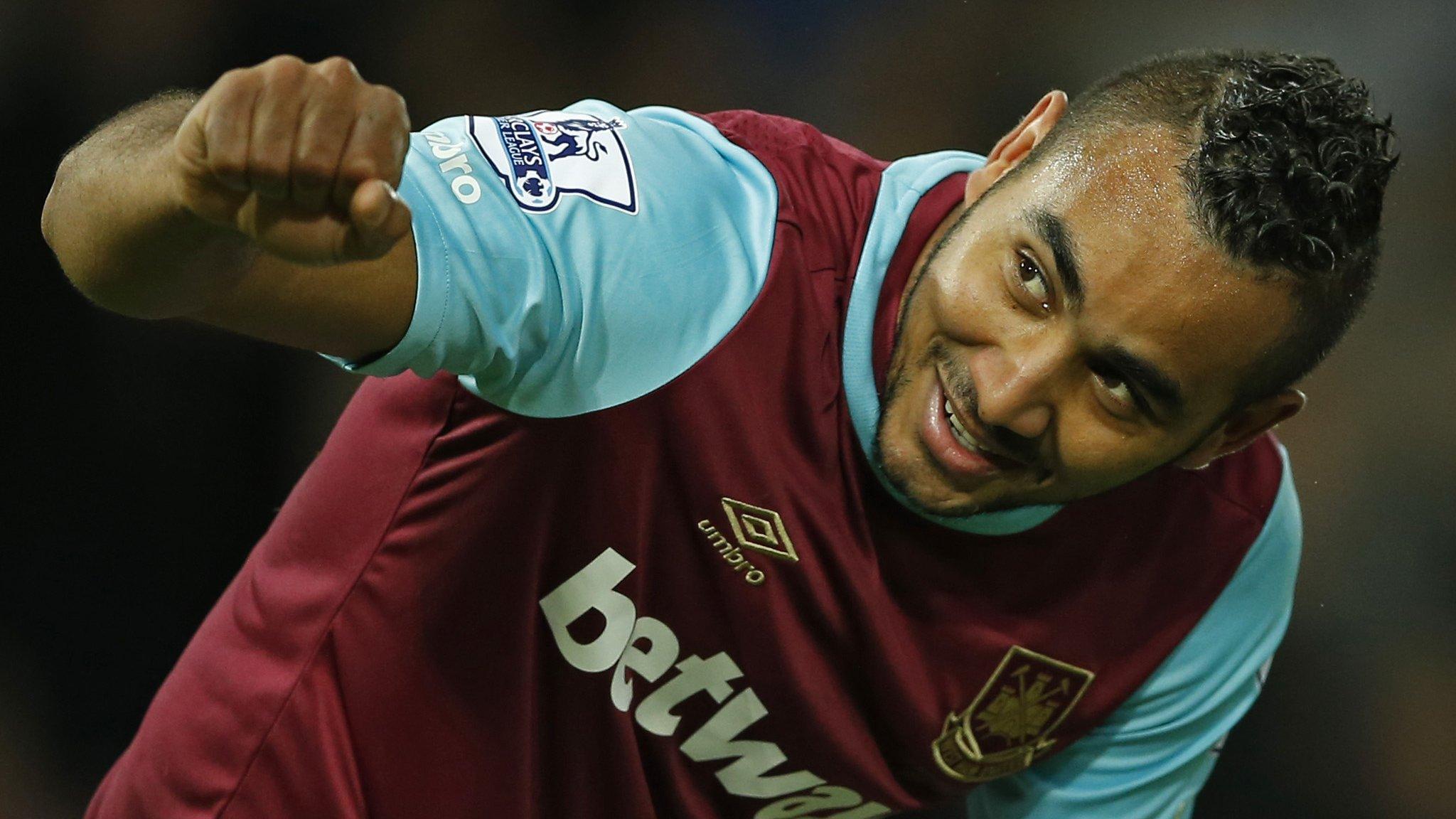
- Published14 September 2015
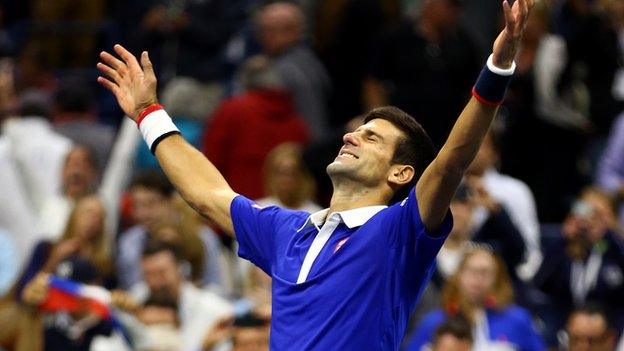
- Published14 September 2015
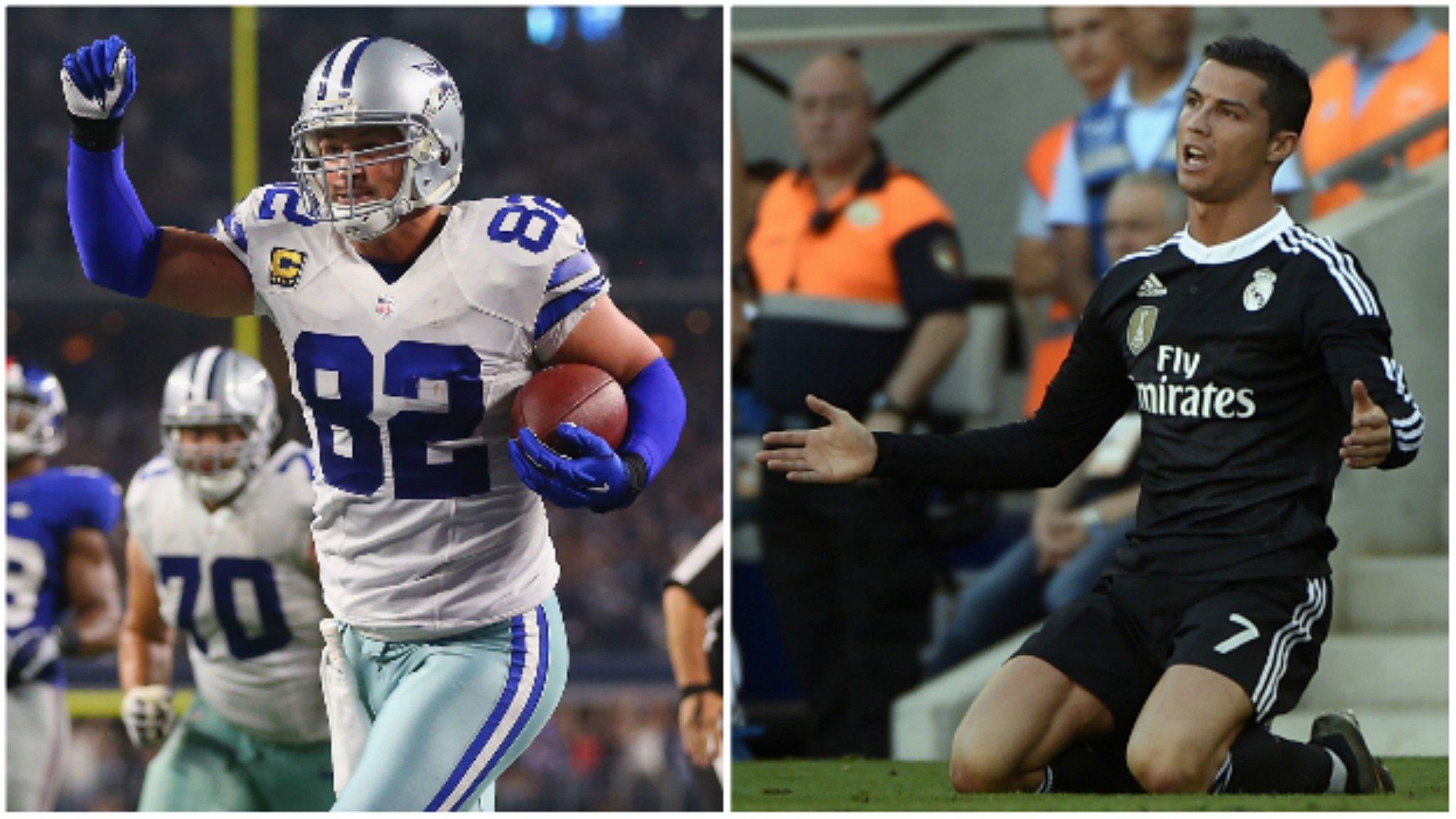
- Published14 September 2015
- Published14 September 2015
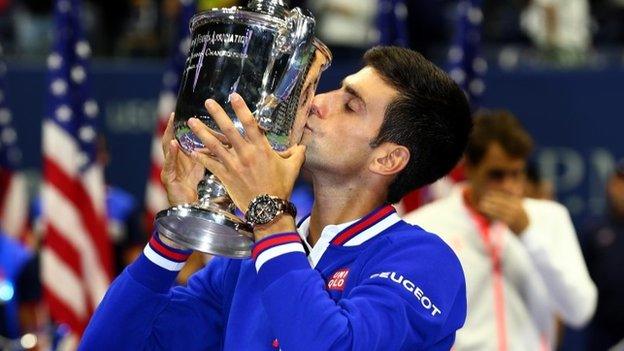
- Published9 November 2016
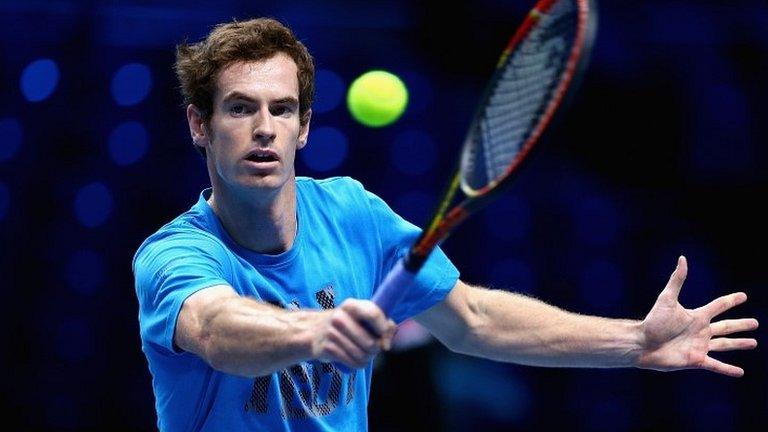
- Published17 June 2019
